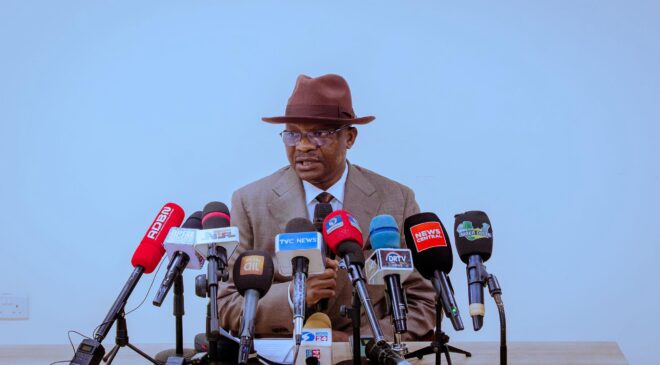
ASABA/Nigeria: The Delta State Government has said its ongoing needs assessment of public schools is designed to correct long-standing imbalances in teacher deployment, infrastructure, and learning resources to ensure equitable and effective allocation across the state.
Speaking with journalists in Asaba on Tuesday, the Commissioner for Works (Rural Roads) and Public Information, Mr. Charles Aniagwu, said Governor Sheriff Oborevwori directed the exercise to end years of mismanagement and uneven distribution in the education sector.
Aniagwu lamented that previous interventions were largely cosmetic, with contractors focusing on roof replacements and painting rather than addressing pressing educational needs. He explained that the new approach would identify specific gaps, whether in classrooms, furniture, or qualified teachers, to ensure interventions have real impact.
“We are not in the business of fixing buildings for the sake of it. If a school has more classrooms than students require, we will prioritize another school where facilities are urgently needed,” Aniagwu stated. “Our approach is guided by teacher-student ratios and infrastructure needs, not political showmanship.”
The commissioner emphasized that the assessment will also correct staffing disparities, as some urban schools currently have an excess of English or mathematics teachers, while rural schools suffer severe shortages.
He cautioned against the reluctance of teachers to accept transfers to rural areas, insisting that every teacher must be willing to serve where their expertise is required. “Nobody is condemned to a particular school. We cannot allow rural communities to suffer shortages while some teachers in urban centers remain idle,” he said.
Aniagwu reaffirmed that future government actions in education—including infrastructure upgrades, teacher deployment, and furniture provision—will be strictly guided by the findings of the needs assessment.
